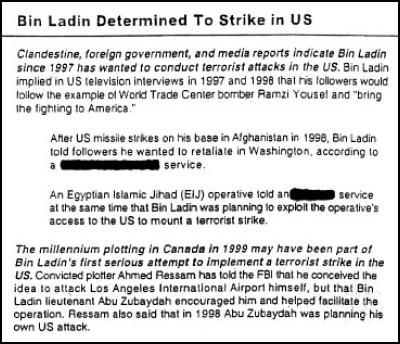Trump Won’t Read Daily Intel Brief, But Kushner Does
No security clearance, but the son-in-law sees everything Feb 18 2018For the last seven presidencies, the day began with reading the daily intelligence briefing, the product of an arduous nightly undertaking by the intelligence agencies that pulls together for morning delivery findings from all over the world.Kushner Clearance Downgraded: Feb. 28: His contacts with certain foreign government officials have raised concerns causing access to classified information to be reduced from top-secret to secret, still extraordinary for someone well past the time limit for temporary clearance.
But The Washington Post was told by three sources that President Trump can't be bothered. He won't read it. A selection has to be read to him, when he has the patience for even that.
That same edition of the Post tells us that Jared Kushner gets to read the President's Daily Brief, or PDF, despite his not have a security clearance. Because background checks can drag on, and Kushner's is complicated by his business dealings, he has been acting for all this time on a temporary status that allows him to see the most secret and sensitive information even while he is a subject of interest in the ongoing investigation into Russia's involvement in the U.S. election.
So how's that for paradox? Candidate Trump led the crowds shouting "Lock her up!" (what did he just say about due process?) for Hillary Clinton's negligent security risk of exposing her email, yet now in the White House he has given a son-in-law without security clearance full access to national secrets.
During the campaign he had vilified Hillary Clinton for "extreme carelessness with classified material" and assured his audiences in August before the election that, "In my administration I'm going to enforce all laws concerning the protection of classified information" and in that September, "We also need the best protection of classified information".
As for the president's disinterest in the threats that confront the United States daily, we can't say we weren't warned. A month after the election, Trump bridled at the expectation he would do what presidents before him had done, telling Fox News' Chris Wallace…
"You know, I’m like a smart person. I don’t have to be told the same thing in the same words every single day for the next eight years — it could be eight years. ... I don’t need that. ... But I do say: If something should change, let us know."
(In that same interview he ridiculed the notion that the Kremlin intervened in the election on his behalf).
In May came reports from a few who had conducted briefs about ways they had devised to overcome what they said is the president's short attention span. "He likes single-page memos and visual aids like maps, charts, graphs, and photos". Trump told Axios shortly before taking office, “I like bullets or I like as little as possible. I don’t need, you know, 200-page reports on something that can be handled on a page”. National Security Council officials said that their method is to insert Trump's name in "as many paragraphs as we can because he keeps reading if he's mentioned." Reports on Russia are confined to the written briefs where he won't run across them; they're omitted from the oral recitations so as not to irritate the president, said this report from December.

The most famous PDB: Delivered by hand by a CIA agent to George W. Bush, vacationing at his Texas ranch, it warned of bin Laden's intention to attack the U.S. The president said to the agent, "OK, you've covered your ass", and resumed cutting brush. That was on August 5, 2001; the attack occurred a month later.
During the transition the administration offered Trump the same briefings as President Obama but the president-elect declined. As an inveterate television watcher, he said he gets his information from "the shows".
Some involved in security and intelligence matters were quick to speak up for the president. Michael Anton, a spokesman for the National Security Council, said Trump “is an avid consumer of intelligence, appreciates the hard work of his briefers and of the entire intelligence community and looks forward every day to the give and take of his intelligence briefings.”
Daniel Coats, the director of national intelligence, said in a statement that “any notion that President Trump is not fully engaged in the PDB or does not read the briefing materials is pure fiction and is clearly not based on firsthand knowledge of the process”. But he would then say in a Senate Intelligence Committee hearing about those allowed to work in the White House for months without security clearance, "The process is broken. It needs to be reformed".
Early on the president received the daily brief with several others present which led to free-wheeling discussions that tended to crowd out those who had come to report on their issues of expertise. But then Chief of Staff John Kelly limited the number of attendees to make the briefs more focused. That may be why the president, according to his published schedules, has backed off verbal intelligence briefs to every two to three days on average. Trump has rarely, if ever, requested that the printed version be left behind to read, say those involved in the sessions.
Please subscribe if you haven't, or post a comment below about this article, or
click here to go to our front page.

